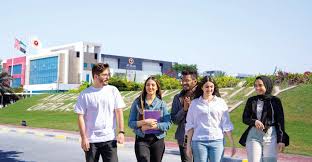The Impact of Study Abroad Programs on Career Development
Study abroad programs have emerged as transformative experiences, not only academically and culturally but also professionally. As the world becomes increasingly interconnected, employers seek candidates with global perspectives and cross-cultural competencies. In this article, we explore the profound impact of study abroad programs on career development and how they can serve as catalysts for unlocking a wealth of professional opportunities.
- Global Perspective and Cultural Competence: Immersion in a foreign country exposes students to diverse cultures, languages, and ways of life. This firsthand experience fosters cultural sensitivity, adaptability, and interpersonal skills - attributes highly valued in today's globalized workforce.
- Language Proficiency: Study abroad programs offer an immersive environment for language learning, enabling students to develop or enhance their proficiency in foreign languages. Proficiency in a second or third language not only broadens communication capabilities but also enhances marketability in an increasingly multilingual job market.
- International Networking: Engaging with peers, professors, and professionals from different cultural backgrounds fosters valuable international networks. These connections can open doors to global job opportunities, cross-border collaborations, and diverse perspectives that enrich professional endeavors.
- Adaptability and Resilience: Navigating unfamiliar environments, overcoming language barriers, and adapting to cultural nuances during study abroad experiences cultivate resilience and resourcefulness. Employers value candidates who demonstrate adaptability and resilience in dynamic work environments, making study abroad alumni desirable candidates.
- Cross-Cultural Communication Skills: Effective communication across cultural boundaries is essential in today's multicultural workplaces. Study abroad participants gain firsthand experience in cross-cultural communication, learning to navigate cultural differences, and communicate effectively in diverse settings.
- Problem-Solving and Critical Thinking: Confronting challenges in unfamiliar environments fosters problem-solving skills and encourages critical thinking. Study abroad experiences often require students to think creatively, adapt to new situations, and find innovative solutions - qualities highly sought after by employers.
- Leadership and Independence: Study abroad experiences encourage independence, self-reliance, and leadership development. Managing finances, navigating transportation systems, and solving day-to-day challenges abroad empower students to take initiative, demonstrate leadership, and develop a sense of self-confidence.
- Cultural Awareness and Sensitivity: Exposure to different cultural norms, values, and perspectives enhances cultural awareness and sensitivity. In a globalized workforce, employees who demonstrate cultural competence and respect for diversity are better equipped to collaborate effectively with colleagues and clients from around the world.
- Enhanced Resume/CV: Including study abroad experience on a resume/CV signals to employers that an individual possesses valuable skills and experiences beyond the academic realm. Study abroad experience demonstrates initiative, adaptability, and a global mindset - qualities that can differentiate candidates in competitive job markets.
- Career Opportunities: Finally, study abroad experiences can directly lead to career opportunities, including internships, job placements, or graduate school opportunities abroad. Employers increasingly value candidates with international experience, making study abroad alumni attractive candidates for a wide range of career paths.
In conclusion, study abroad programs have a profound impact on career development by cultivating global perspectives, cross-cultural competencies, and valuable professional skills. From language proficiency to cultural awareness and leadership development, study abroad experiences unlock a world of professional opportunities for students seeking to differentiate themselves in today's competitive job market.






